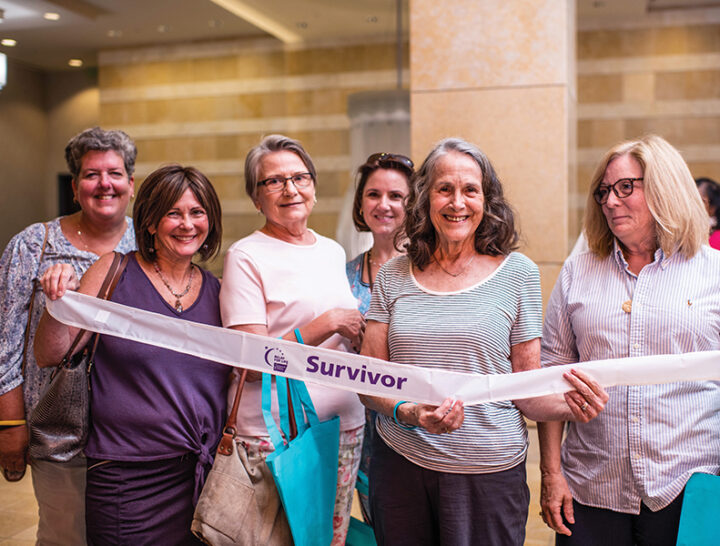Education
Treatment Options
At Sentara, our first priority is helping to raise awareness of risk factors and the importance of screenings in catching problems as early as possible. If you do find out that you are facing cancer, the Sentara Cancer Network and our new Sentara Brock Cancer Center become a partner in your fight.

Assembling Your Support Team
We are dedicated to bringing together the right team with the latest advanced technology to provide the best possible results in treating your type of cancer. Combined with the comfort of knowing that whatever you need can be found across the Sentara Cancer Network, you can be assured that we will be here to support you every step of the way.

What Happens First
In many cases, the first step after diagnosis is seeing a surgeon. During this appointment, the surgeon will examine you, ask lots of questions, and then tell you their initial impressions for treatment. Before you leave the surgeon’s office, you may be scheduled for an MRI, CT, PET scan, bone scan, and have appointments to see the Medical Oncologist and the Radiation Oncologist.
Three Types of Treatments
Part of the power of Sentara’s approach to cancer treatment is multidisciplinary care. Your care plan may include surgery, anti-cancer medications, or radiation therapy.
Surgery
Taking out the cancer in an operation — surgeries may be outpatient or require overnight stays of one or more nights in the hospital.
Medication
- Chemotherapy: Use of medicine or drugs to treat/kill cancer
- Immunotherapy: Medicines or drugs that uses your body’s own immune system to help fight cancer
- Targeted Therapy: Use of medicines or drugs that attack certain types of cancer cells
- Hormone Therapy: Using pills that change the way hormones work
A Medical Oncologist is the doctor who will decide if you need these types of medicine as part of your treatment.
Radiation Therapy
This uses high-energy X-rays to kill cancer cells or stop them from dividing. There are different types of radiation therapy, ranging from external (given to the outside of the body), internal (radiation source is placed inside the body) or systemic (given by mouth or into a vein). A radiation oncologist directs this care.

Making A Plan
The Sentara Cancer Network functions as a team. We bring together a multidisciplinary team of experts for a comprehensive review of each patient’s condition and current results to create a personalized treatment plan. This allows us to provide our patients with the highest quality of care and most advanced treatment options.

Know Your Options
Your prognosis (likelihood of recovery) and treatment options depend on the following:
- The stage of the cancer (whether it is in the specific body organ only or has spread to lymph nodes or other places in the body)
- The type of cancer
- The receptors in the tumor tissue
- Your age, general health and lifestyle
- Whether the cancer has just been diagnosed or has recurred (come back)
Nobody should face cancer alone.
Looking for additional information about community resources, support groups or financial support? Find this and more in the Support section of our site.
Visit Support Page